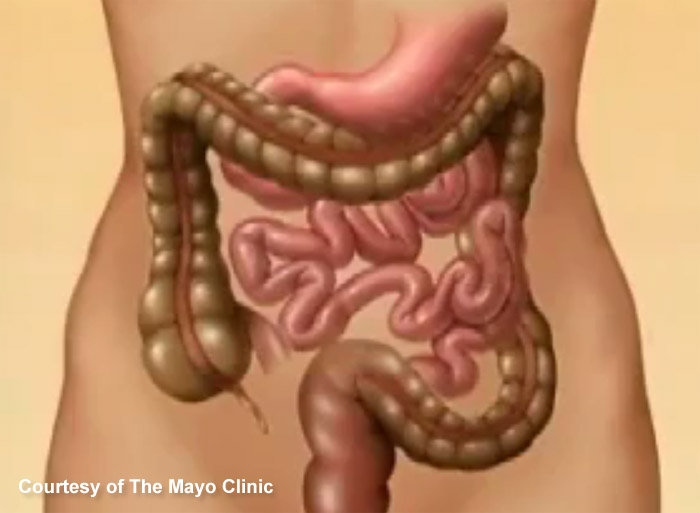Supporting Your Emotional Health Is a Vital Part of Optimizing Your Physical Health
The Importance of Emotional Release
Other Suggestions to Support Emotional Health
Natural Support for Emotional Regulation
Introduction
Emotional health must not be overlooked when it comes to optimizing physical health. Mental and emotional well-being is critical to overall wellness, because our emotional and physical states are deeply linked.

One important example of this emotional/physical link is the brain-gut connection, which has been shown through numerous studies, including those assessing the health of the gut microbiome in people with major depressive disorder (MDD).
Because of the connection between the brain and the gut, focusing on gut health can improve mood and, conversely, focusing on emotional health can help alleviate digestive issues.
▶︎ Learn More about the Gut Microbiome
But this connection between the physical and emotional goes beyond the gut. A second important example (and there are many more) is that unaddressed childhood trauma can impact the strength of a person's immune system and the level of inflammation in the body, according to this psychoneuroimmunology study. This points to the importance of attending to emotional healing and mental health as part of overall wellness.
A Hard Time To Be a Human
As the climate crisis worsens, economic conditions tighten, and the world continues to deal with the effects of the COVID-19 pandemic, our society faces an increase in mental health issues.
According to the WHO's world mental health report released in June 2022, depression and anxiety rose 25% in the first year of the pandemic. Even before then, rates of mental illness were on the rise in many parts of the world, with the American Psychological Association publishing a study showing a 50-60% increase in rates of major depression among American adolescents and young adults between 2005 and 2017.
When the trauma and distress from these worsening conditions is combined with the emotional baggage many of us have been carrying since we were young, most of us are walking around with heavy emotional weight upon us that may have a drastic impact on the physical health of our bodies.

The Importance of Emotional Release
One of the best ways I've found to recover from the effects of early and present emotional pain is to create space for physical release of emotions when they arise. Many of us in modern Western society are conditioned from a very young age not to show emotion, to keep it inside — "Don't cry, you're okay" or "Be a big boy/girl." As a culture, we have become so numb to our emotions that most adults find it difficult to even notice when feelings occur, let alone give themselves permission to let those feelings out.
Crying, raging, and other forms of emotional release are a natural way to heal from trauma, as explained in this publication in the Journal for Prenatal & Perinatal Psychology & Health, which includes a study that found that adults who spend an hour or more crying or raging in a psychotherapy session have "lower blood pressure, pulse rate, and body temperature, and more synchronized brain-wave patterns" after the session.
Anyone who has ever had a good cry knows how cathartic it can feel. Therefore, I recommend paying attention to your mood and, when you notice feelings, let yourself have them!
Types of Emotional Release
- Crying — For some people this comes naturally, and if this is the case, try to create space when feelings arise and let yourself cry. Some people who find it hard to access crying use tools like listening to a certain song or watching a particular movie which reliably induces tears.
- Yelling/venting anger — It can be helpful to have a physical motion to go along with this, like punching a pillow, stomping your feet, or squeezing a soft object.

- Laughing — Laughter can be very cathartic. When you're with friends, make jokes and when laughter arises, lean into it. Spend more time with people who make you laugh. Don't shy away from sounding "a little crazy" — maniacal laughter can be quite healing!
- Shaking — This is a fundamental way of releasing fear or terror. If you notice feelings of nervousness or anxiety, you can try shaking your shoulders or hands, or even letting out deep exhales with "horse lips" to release pent-up anxiety or fear. You can shake out your hands and feet, or even wiggle your shoulders or whole body. Feel free to make sounds as you do this, such as sighs or groans. This helps with the release.
- Yawning — Less commonly understood, yawning is an excellent way to release feelings. Instead of viewing yawns as rude or making you feel sleepy, let yourself yawn fully when you notice one coming up. I do this, and often one yawn can turn into ten! If you need help getting started, remember, yawning is contagious: start by making a yawning motion in the mirror. You'll trigger your own yawn!
Other Suggestions to Support Emotional Health
- Getting good sleep is really important for emotional well-being. Check out our sleep support article for suggestions on how to improve your sleep habits.
- Consider working with a therapist who you can meet with you every week or two. Check out Psychology Today's website to find a therapist in your area, or you can also try one of the many online therapy platforms. (Virtual therapy takes place via text messaging, chat, phone, and/or video.)
- Have regular check-ins with a close friend during which you can both confide in each other and talk/cry/laugh/vent about things that are hard.

- You can also rely on the environment around you, and relate to the space you're in — the room or house, the forest or trees, even the sky or a body of water — as a loving presence that is listening to you as you move through feelings and release them. Even house plants, pets, or stuffed animals can be great listeners!
- Journal about your emotions every day or week to develop a practice of self-awareness.
- Mindfulness and meditation practice can help with emotional regulation and calming anxiety.
- Maintaining blood sugar levels can be helpful in balancing mood. Check out this article for tips on balancing blood sugar.
- A balanced, nutritious diet free from sugar and common allergens can have a positive impact on mood. Check out my recommended 10-Day Diet.
- Regular movement and exercise helps maintain mood and improve physical and emotional health.
- Children's Health — This website is a great resource for parents who are trying to support the emotional health of their children.
A Note about Pharmaceutical Medication
The corporations that run the pharmaceutical-industrial complex have profited massively from the theory that mental illness (such as depression, anxiety, and bipolar disease) is caused by chemical imbalance in the brain and therefore is best treated with psychoactive drugs.
This article explains the history of this chemical imbalance theory and how it has yet to be actually proven. I suggest trying as many other tools or approaches as you can before resorting to pharmaceutical drugs. That being said, for some people, especially those struggling with really serious mental health challenges, these drugs have been helpful in improving quality of life.
Natural Support for Emotional Regulation
Summary
An integrative approach to emotional and physical health is necessary. One of the best ways to improve emotional health is through a wide variety of forms of emotional release. Being in touch with and letting out your feelings, combined with addressing diet, sleep, and exercise, and taking any necessary supplements, can help improve emotional wellness and therefore physical well-being.
Additional Support
▶︎ Listening to Your Body: The Guide to Intuitive Eating, Supplementation, and Emotional Release for Optimal Health
DISCLAIMER: This material is presented for informational purposes only and is not a substitute for medical advice, diagnosis, or prescribing from a licensed healthcare professional. We make no claim or guarantee for cure or relief of any specific symptom, medical condition, or disease when using any of the products or protocols referenced here. Consult with a licensed healthcare professional before altering or discontinuing any current medications, treatment, or care, or starting any diet, exercise, cleansing, or supplementation program, or if you have or suspect you might have a health condition that requires medical attention.
By Kristina Amelong, CCT, CNC
I-ACT-Certified Colon Hydrotherapist
Certified Nutritional Consultant